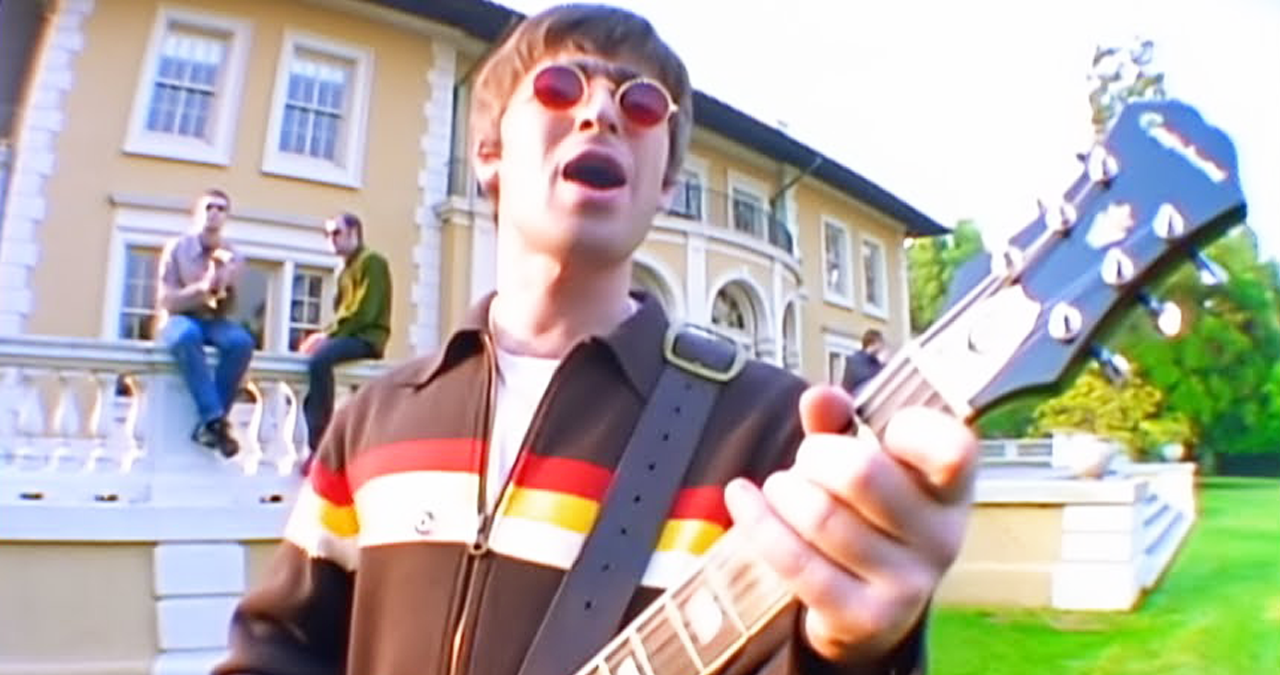
Amongst those passive folks who rarely engage with music beyond the general hubbub of background noise and the odd algorithmically-generated playlist, it’s likely that when it comes to Oasis, there’s a choice of three songs they’ll almost certainly know.
Everybody is aware of global crossover hit Wonderwall, most are familiar with the stature-defining Live Forever and the vast majority won’t just recognise Oasis' monster anthem, Don’t Look Back in Anger, they’ll be triggered to join in with its joyous chorus full-pelt. Even if they detest the Gallaghers.
Indeed, it was Don’t Look Back in Anger that elicited the most heartfelt singing back from the crowd during the band’s first reunion show at Cardiff’s Principality Stadium, and the song which seemed to tap into a much deeper emotional well amongst the enraptured masses, both young and old.
Though perhaps less known in the US than in the UK (where it’s probably you’ll encounter it at least once a week), Don’t Look Back in Anger has come to be held in almost the same regard as the Beatles’ biggest communal anthems, Hey Jude, Let it Be, All You Need is Love - Oasis’ song was consciously made from the same stuff.
Since the very beginning, Oasis had worn their Beatles-devotion on their sleeve. It was visible in their bowl-shaped hairstyles, audible in Liam Gallagher’s nasaly, Lennon-inspired vocal delivery and felt within the the strident major chord choices of chief songwriter Noel Gallagher.
But the powerhouse production of their first, huge-selling, record Definitely Maybe did much to shroud this 1960s influence within a driving, visceral package, channeling more from the well of scuzzy, abrasive punk and the pomp of early 70s' glam.
"They were just an indie band before I joined," Noel remembered in an interview with NME in 1994."It was all right, it just wasn't rock 'n' roll. But the bassist looked good, the drummer didn't look too bad, and Our Kid looked pretty fucking cool. At the time I was a roadie and I thought, ‘F-me, it's looking me in the face.’ So I bowled into the practice room one day and said, 'Right, change that guitar, take them shoes off, cut your hair, I'm gonna be doing this from now on.' And they just looked at me and said, 'oh, all right, then."
Early Oasis married a spirited Slade-cum-Sex Pistols energy (Rock 'N' Roll Star, Bring it on Down) with Beatles-esq nods to psychedelia and self-belief (Shakermaker, Live Forever). Their rejection of the tropes of stadium rock tapped into the reflective mood currently in the air with early 90s' anglocentric guitar bands.
Definitely Maybe, harking back as it did to these vehemently British influences was the most well-defined line in the sand yet against the dominance of American rock, which had grown colossal through the preceding decade.
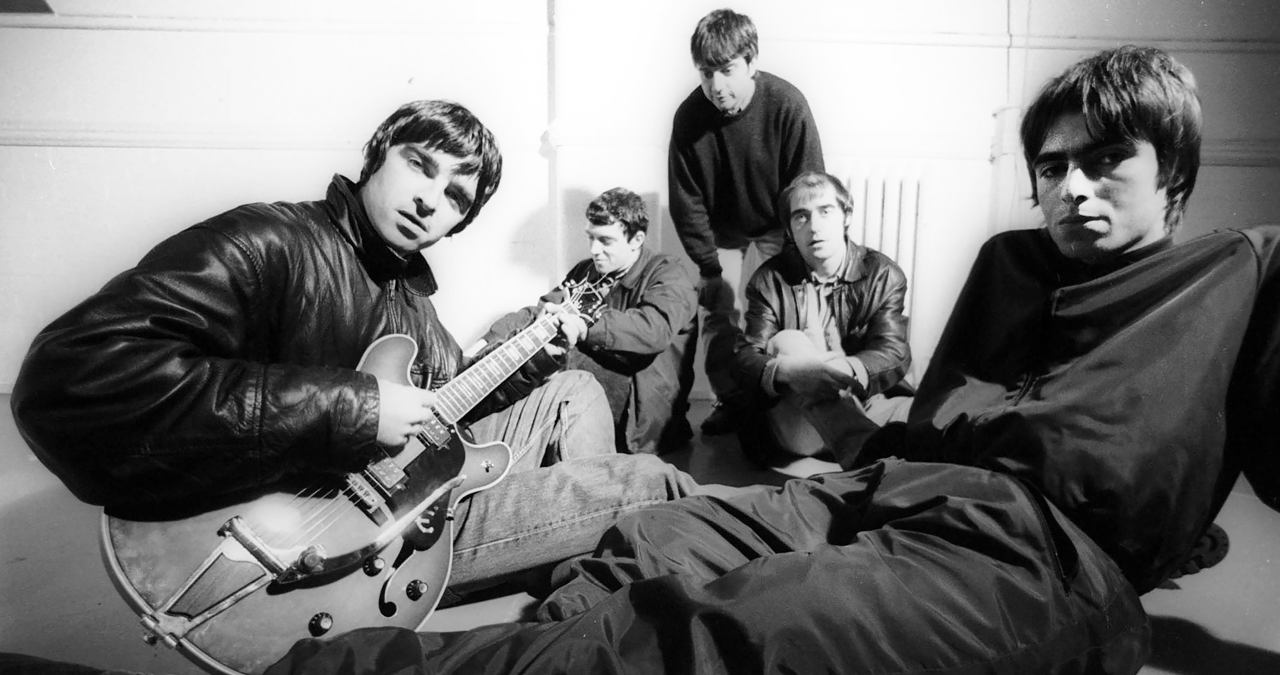
Noel was also energised by the communal spirit of dance music that had been exploding in Manchester, and funnelled the same ethos of togetherness into his songwriting. Songs that were presented with provocative but mesmerising power by his brother, Liam. A man for whom self-doubt was an alien concept.
"Definitely Maybe was the last great punk album in many respects,” Noel told Mojo. “We were a punk band with Beatles melodies. We had no effects, barely any equipment, just loads of attitude, 12 cans of Red Stripe and ambition. If you listen to that and [the Sex Pistols’] Never Mind The Bollocks, they’re quite similar.”
The album became the fastest selling debut in British history. On its back, Oasis' sibling frontmen became increasingly visible figures in the media.
Celebrity beckoned, and with it, a realisation that the wider British public - beyond the music press and regular gig-goers - had resonated with Oasis' authentic character.
Album two then, would be written with an awareness of the band’s seemingly confirmed greatness. It would need to make good on their own boisterous claims of being the greatest rock band in 90s Britain. But there was some competition, although that's a different story.
“Once you’ve written Rock 'N' Roll Star, Live Forever, Supersonic, Slide Away, it’s like, come on, everybody get out the way now… The confidence came from the fact that we had these songs and we could fucking play them,” Noel told Mojo.
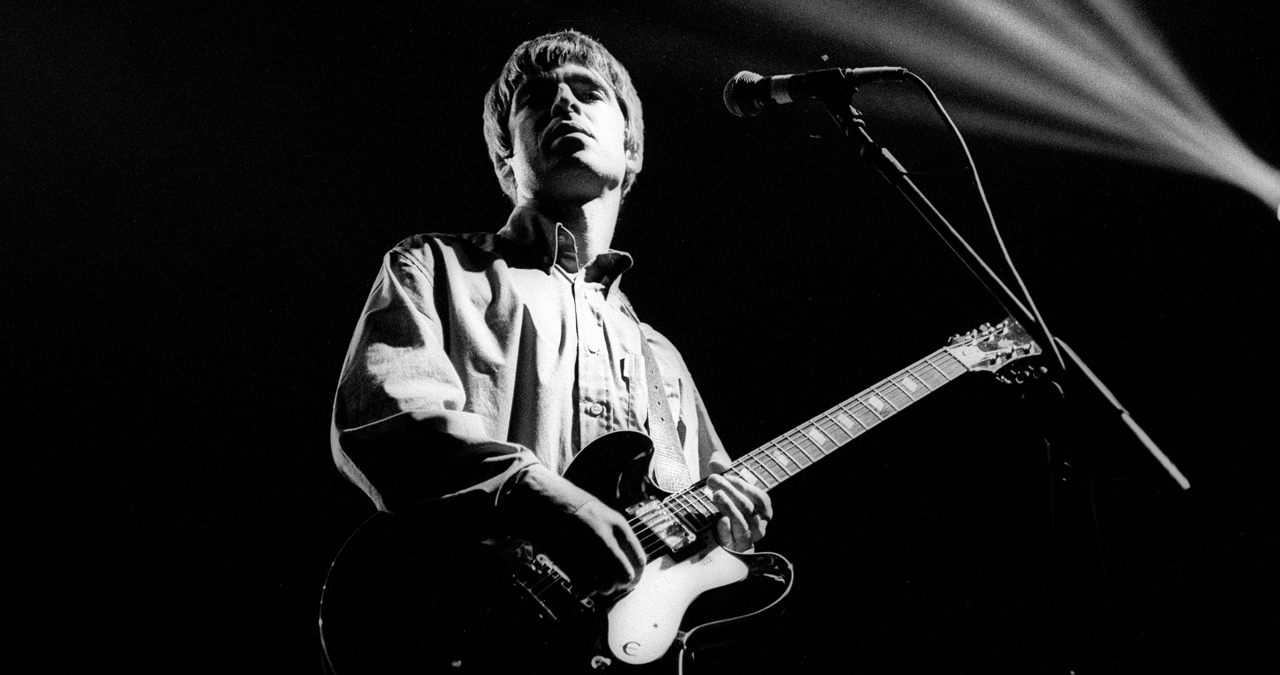
A mere month before recording was set to commence on their hit-packed follow-up, (What's the Story) Morning Glory? with producer Owen Morris at Rockfield Studios in Wales, Noel would knock-up one of its most enduring songs.
The basic chordal journey of the sketch that became Don’t Look Back in Anger was clearly indebted to the Beatles’ Let It Be (with which it mirrors the reverential, Pachelbel’s Canon-cribbing chordal structure - albeit with some variations), as well as John Lennon’s eternally resonant Imagine (that C/F/C/F introduction is fairly identical, yet with a more spritely tempo).
Though Noel had previously borrowed from/referenced the Beatles within lyrical themes and a certain chords, never before had he so consciously made the Beatles-influence such an obviously recognisable aspect of a song.
It first came to Noel following a particularly lairy night in Paris. “We’d been [playing a show] at a strip club,” Noel recalled in an interview. “I remember being drunk, and I remember writing it. My guitar was laying on the floor and the lyrics were on a sort of table in the hotel room. I played it back to myself and thought ‘this could be good, this could be pretty good’”
The song’s lyrical thrust was driven by a more mature perspective than had been on display during the Definitely Maybe era. Being at peace with your life choices, getting over the regrets of yesterday, and looking forward to a brighter tomorrow without the past weighing you down. These were big, relatable themes, and with the right shaping, this freshly-hatched song could have a huge appeal.
Wedded to those Beatles-chords, it was shaping up to be Noel’s pivotal masterstroke. Proof of Oasis' greatness, after all.
It was its ‘big’ chorus that proved the most tricky element to iron out. While the central hook of ‘Don’t look back in anger, I heard you say’ was a set motif, the remainder of the chorus was still in development, place-held in part by the repetition of the rhyming line, ‘My soul slides away’.
It would take Noel’s ever-thoughtful brother, Liam to chime in with the decisive line.
As Noel recollected in the (utterly hilarious) commentary for the video collection Time Flies: 1994-2009, “I was doing [the rough sketch of Don’t Look Back in Anger] at a soundcheck at our first arena gig in Sheffield. Liam came up and said ‘Who’s Sally?’
Noel was confused. “I was like, ‘I don’t know what you’re talking about’. He said, ‘Is that what you’re singing - so Sally can wait?’”
Suddenly, Liam’s puzzlement over the line began to turn Noel’s creative wheels, a character emerged - and the song's themes fused in a split-second. “‘No it isn’t… but it is now - nice one!’” responded Noel.
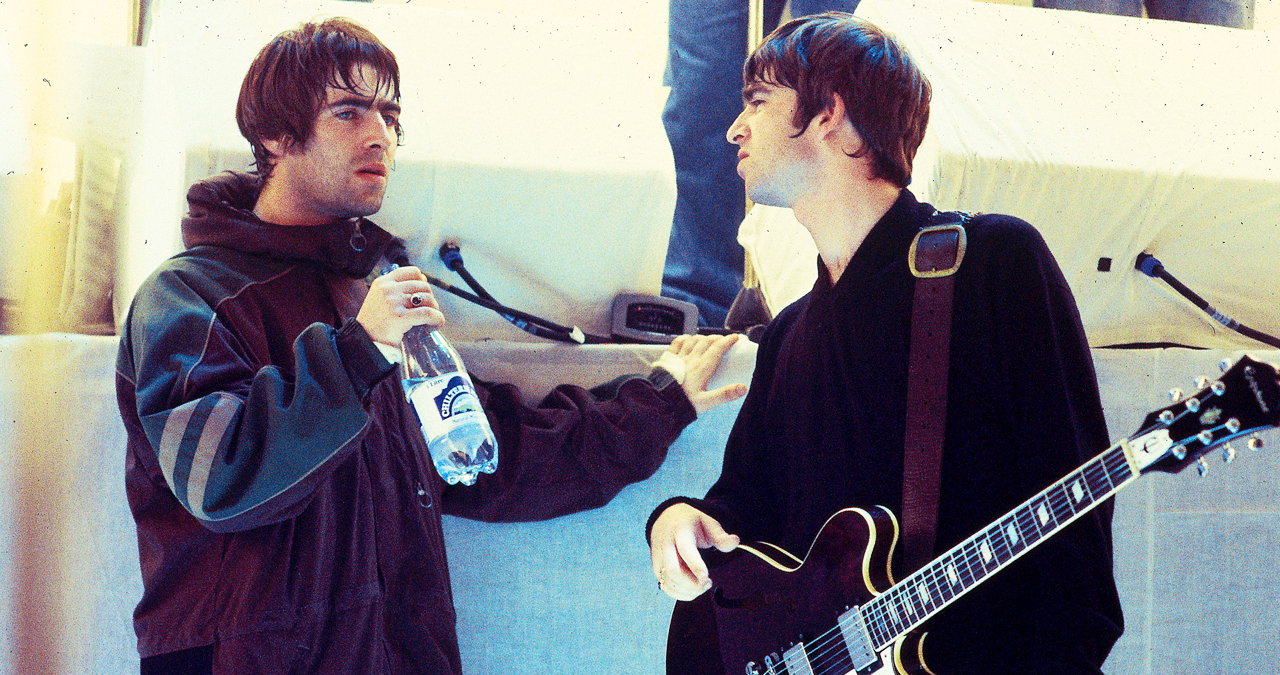
With ‘Sally’ now the named character within the song, the lyrics' theme coalesced around her. “[Sally] is metaphorically seeing the diary of her life pass by, and she’s thinking, ‘you know what, I have no regrets,’” Noel told NPR. “She’s raising a glass to it, Then it becomes a song of celebration. And now, it’s like a hymn.”
Fired up by this unexpected, fateful completion of the song, Noel opted to play it that very night, acoustically on a stool.
"There’s 12,000 people there, and I was about to play them a song that no one had heard. No one in the band had heard it. I’m not sure what possessed me to do that, but no footage of it exists. There’s no recording of it. So we can never tell if it was any good or not. There was a polite ripple of applause. That was it," Noel told Sweden's Hitlåtens Historia.
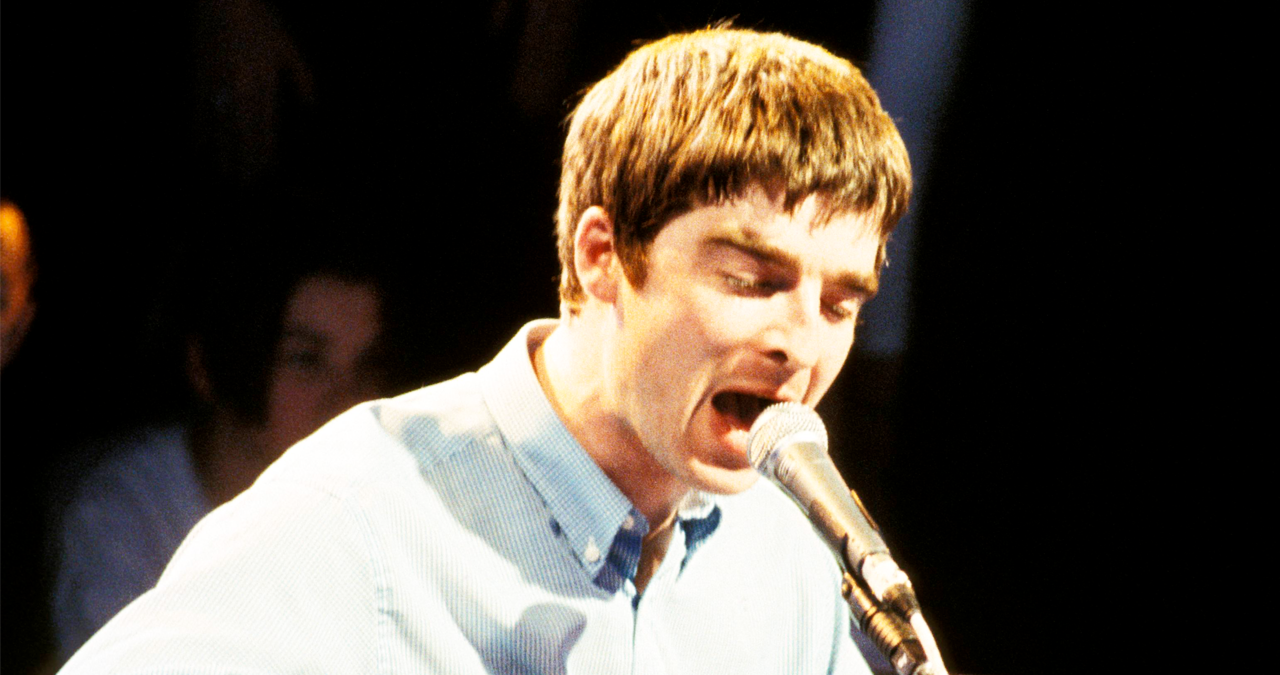
Elsewhere, the song’s undisguised Beatles-worship permeated the lyrics too, with the line ‘gonna start a revolution from my bed’ a clear allusion to John Lennon’s legendary bed-in for peace in 1969.
"I got this tape in the United States that had apparently been burgled from the Dakota Hotel and someone had found these cassettes,” Noel was quoted as saying. “Lennon was starting to record his memoirs on tape. He's going on about 'trying to start a revolution from me bed, because they said the brains I had went to my head.' I thought, 'Thank you, I'll take that!’”
When it came to lay down both Don’t Look Back in Anger and the equally sublime Wonderwall with producer Owen Morris at Rockfield Studios, Noel gave his brother a choice of which of the potential twin global hits he wanted to sing.
After a bit of chin-stroking, Liam plumped for Wonderwall. This left Noel the spotlight to tackle the lead vocal of Don’t Look Back in Anger. It would be the first Noel-sung Oasis song not on a B-side, and the first Noel-sung single in the Oasis canon.
“For ‘Don't Look Back in Anger’, Noel put a guide acoustic and vocal down to a click track. Alan [White] played along and got his drums within two or three takes. It was all very matter-of-fact,” producer Owen Morris remembered in an interview with Uncut.
“The person in the studio who was most excited by the song was Noel's guitar roadie, the legendary Mr Jason Rhodes. He was convinced it was Oasis' best song. I think the happiest part of recording the song was when we did the sing-along backing vocals on the last chorus, and Jason proudly led the drunken crowd.”
But Morris, who had his fair share of tribulations working with the increasingly volatile Gallaghers during the (What's the Story) Morning Glory? sessions, wasn’t overawed by the finished product from a production point of view.
“Sonically, like the rest of Morning Glory, Don't Look Back in Anger is pretty ropey. I was recording things very basically. Alan had some dodgy old drum kit. We got away with it because of the quality of the songwriting and the conviction in the singing and guitar playing. It's not a recording I've ever listened to and could claim to be proud of the production,” Morris told Uncut.
It’s undeniable that a major part of the song’s success was that it seemed to not just echo but actively resurrect that halcyon 1960s era when pop music was tunneling deeper into people’s subconscious.
In the mid-1990s, the British public’s re-engagement with the Beatles legend had been stimulated by the release of the definitive documentary series The Beatles Anthology in 1994.
Britain's Gen X, then coming of age, thrilled at the mythology of their country’s cultural legacy.
Rather than driving forward toward a more technological future, which had been the bent of so much pop of the previous twenty years, they instead began to muse over a highly-stylised version of the cherished British pop narrative.
Like football, it was a patriotism that they could be, for once, proud of.
This feeling snowballed into idea that Britain was heading towards a new cultural apex, manifesting on a political level with Tony Blair’s election in 1997, a triumph that was prefigured by the Labour Party’s shrewd engagement with Britpop - and specifically Oasis.
Cool Britannia was on the rise.
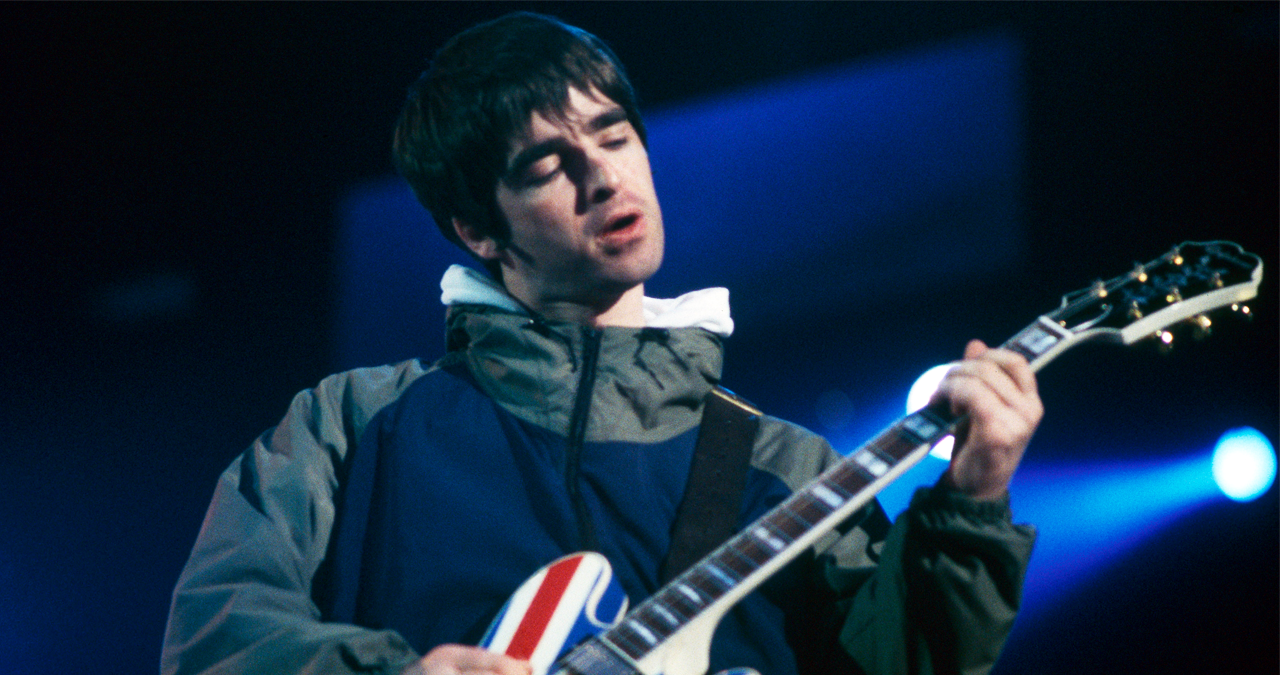
The triumphant spirit of this era was perfectly bottled in Don’t Look Back in Anger, which - when released as the album’s fourth single on February 19th 1996, shot to the top of the UK charts and became the band’s second biggest selling single, nipping at the heels of the previous single, the transatlantic smash Wonderwall.
The single's cover, too, couldn't help but fawn over Beatles lore, depicting the moment when Ringo Starr was welcomed back to the band in 1968 after a brief departure, to find flowers decking out the studio.
Don't Look Back in Anger all but confirmed Oasis as the self-styled torchbearers of Britain’s culture-swamping pop music legend - with a song that was both relatable, emotive and drew from the past to usher in a looming golden age.
A golden age for both popular culture and, as expressed in the narrative of Sally, a new chapter in the personal lives of its listeners.
“If I knew that I’d still be sat here today talking about it, I’d never have finished it,” reflected Noel. “Because how could it possibly have lived up to it. That song has almost become bigger than Oasis."







